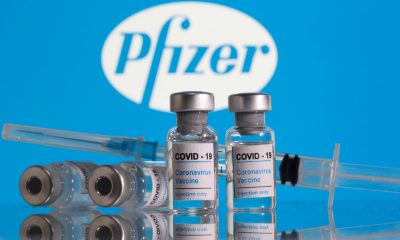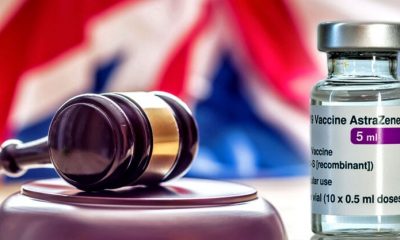Alum, an aluminum-based adjuvant or immune-enhancer used in many vaccines — including inactivated-virus COVID-19 vaccines — helps protect against the targeted (homologous) virus strain, but may also raise infection risk from new (heterologous) virus strains, referred to as “breakthrough” infections, according to a preprint study published on Research Square.
Of the 13.5 billion COVID-19 vaccine doses administered globally, 5 billion used inactivated coronavirus as their active ingredient. Unlike the Pfizer and Moderna vaccines, inactivated-virus COVID-19 vaccines do not use mRNA.
Instead, they use killed or weakened viruses to bring about the immune response.
Examples of virus-inactivated COVID-19 vaccines include China’s CoronaVac product, which was distributed in 40 countries, and the Indian COVAXIN product.
Alum also increases the risk for vaccine-associated enhanced respiratory disease (VAERD), a potentially life-threatening complication, after infection with a new strain. However, this effect disappears when alum is replaced by a different adjuvant, according to the study.
Researchers led by Mark Heise, Ph.D., an immunologist at the University of North Carolina, used laboratory mice to compare the effectiveness of an inactivated, alum-containing SARS-CoV-2 vaccine (iCoV2) against two coronaviruses: the strain for which the vaccine was designed, known as the homologous strain, and a previously unencountered (“heterologous”) coronavirus.
READ ALSO: Surgeon General calls for halt in use of COVID mRNA Vaccines
The test animals were bred specifically for susceptibility to coronavirus-induced lung disease.
The alum-containing vaccine is protected against homologous (i.e., same virus) challenges with no apparent ill effects.
But when the mice were exposed to a coronavirus that the vaccine was not designed to protect against, they developed classic symptoms of VAERD. The symptoms included delayed coronavirus clearance and decreased lung function.
This effect, which persisted for at least 10 months, appears to be related to the adjuvant because when alum was replaced with Ribi — an unapproved, research-only adjuvant — mice cleared the virus faster and did not develop VAERD.
Ribi adjuvants are emulsions of salt water, a detergent, two bacterial products and the approved adjuvant squalene. Ribi interacts with immune cells to enhance the release of cytokines (immune molecules) and antigen processing.
VAERD is a type of vaccine-associated enhanced disease (VAED) that affects the lower respiratory tract, primarily the lungs. The letter “E” in VAERD and VAED refers to “enhanced” — or atypical cases of a viral disease after vaccination against it.
In the second example, infants who received the respiratory syncytial virus (RSV) vaccine were later infected by RSV and developed VAERD. Both of these studies were from the 1960s.
The third case, from 2020, involved severe dengue disease outbreaks in dengue-vaccinated children who had previously taken a dengue vaccine.
COVID-19 vaccination-induced VAEDS was already recognized as a complication by the summer of 2020, while the vaccines were still under evaluation. However, a later paper claimed the immunologic changes signifying VAERD were “associated with antiviral protection without disease enhancement” following mRNA-based vaccination.
Adjuvants are chemical irritants that prime the immune system to respond strongly and durably to antigens in vaccines.

 Health & Fitness3 days ago
Health & Fitness3 days ago
 Featured7 days ago
Featured7 days ago
 Education1 week ago
Education1 week ago
 Aviation5 days ago
Aviation5 days ago
 Business1 week ago
Business1 week ago
 Business7 days ago
Business7 days ago
 Crime1 week ago
Crime1 week ago
 Aviation4 days ago
Aviation4 days ago













